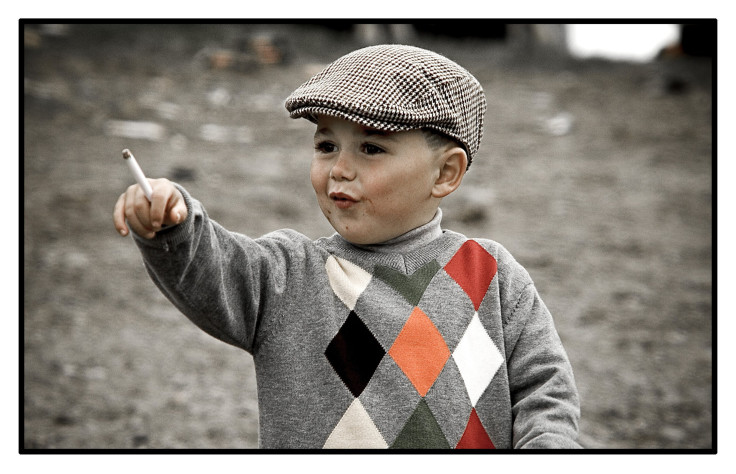Secondhand Smoke Exposure In Early Childhood May Increase Risk Of Baby Tooth Decay

Kids are told often enough that a sugary snack or an unused toothbrush can lead to cavities (formally known as caries), but as it turns out, their parents’ smoking habits may also be a risk factor, according to new research published Wednesday in the BMJ.
Analyzing the medical records of more than 70,000 children from Japan, the study authors found a noticable, if relatively small, association between early secondhand smoke exposure and increased rates of baby tooth decay, even after controlling for other factors. Overall, they found a twofold increase in tooth decay among children who were directly exposed to tobacco smoke at the age of four months, and 1.5-fold increase among children known to live in a household with smoking family members.
“Although these findings cannot establish causality, they support extending public health and clinical interventions to reduce secondhand smoke,” the authors concluded.
To date, there has been a steady stream of studies finding a moderate to weak connection between early secondhand smoke exposure and later tooth decay, though as the researchers explained, much of this research has involved studying a population at any one given point in time (a cross-sectional study) rather than following a group of people over time (a cohort study). While cross-sectional studies are immensely useful for their simplicity, a cohort study allow researchers to better isolate the relationship between two factors — in this case secondhand smoke and tooth decay.
In this latest study, the authors were able to examine the children’s medical data taken from routine check-ups made at 0,4,9, and 18 months and at 3 years of age, as well as questionnaires taken from their parents on their smoking habits. Ultimately, they looked at 76,920 children born between 2004 and 2010 in Kobe City, Japan. These children were part of the larger Kobe Offspring Study.
More than half of the children studied lived in smoke-filled households, and over a three-year-period, 18 percent were at risk of developing tooth decay. Unlike earlier studies, the authors found no significant effect of maternal smoking habits (while carrying a child) on later tooth decay. Though their study can’t offer a concrete explanation for why secondhand smoke might harm children’s teeth, the authors explained that secondhand smoke exposure is already known to weaken the immune system, increase oral inflammation, and impair the body’s ability to produce saliva — all possible mechanisms for tooth decay.
They, however, cautioned that their findings, important as they are, should be taken as yet another incremental step forward in proving the connection between secondhand smoke and oral health rather than a smoking gun. And it remains to see what the broader implications of this research will mean.
“[E]ducation on the harm of secondhand smoke might increase if dentists became aware of the risk of caries due to secondhand smoke as well as tobacco consumption of their clients,” they wrote. “However, further investigation is necessary to conclude whether a smoking prevention program would reduce the risks of caries, since the size of effects of secondhand smoke was not large.”
Source: Tanaka S, Shinzawa M, Tokumasu H, et al. Secondhand smoke and incidence of dental caries in deciduous teeth among children in Japan: population based retrospective cohort study. BMJ. 2015.
Published by Medicaldaily.com



























